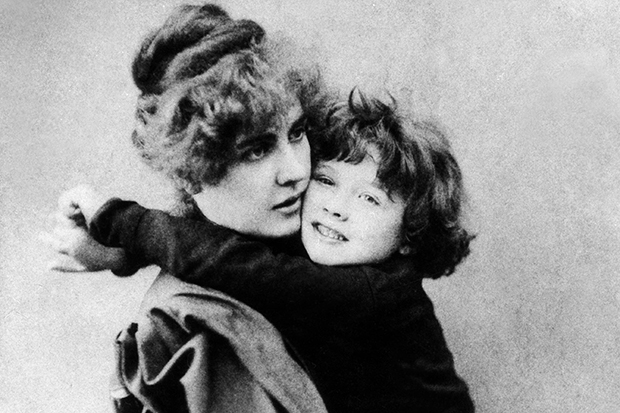There were few subjects which escaped Oscar Wilde’s barbed wit: dentists, cynics, Americans, literary critics, democracy, the working classes, the middle classes, the upper classes and Bernard Shaw were all prey for his cutting paradoxes. Family, however, got off lightly. Not for Wilde the sinister or cruel depictions of relations which permeate the novels of Evelyn Waugh and find their dysfunctional climax in Brideshead. On the contrary, family is an affectionate theme running through most of Wilde’s work and is at the very heart of his masterpiece, The Importance of Being Earnest — a play whose plot rests on the fact that the leading protagonist has lost his parents.
This does not mean that Wilde was always dutiful towards his family. As a gay man, who had a number of serious affairs with other men, he was far from being an ideal husband and, as Emer O’Sullivan recounts, would often abandon his wife for months on end. Distracted by fame, he would also neglect his literary mother, who, despite having moved to London with her sons after the death of her husband, led an increasingly lonely life —though Oscar would always pay her debts. Yet he was deeply attached to his family, whom he loved with all the unrestrained passion for which he was famous.
For a man who would later become so notorious, Oscar Fingal O’Flahertie Wills Wilde had a notably respectable upbringing. Neither born nor left in a handbag — which as Lady Bracknell reminds us, ‘displays a contempt for the ordinary decencies of family life that reminds one of the worst excesses of the French Revolution’ — Wilde was the son of two of Ireland’s most famous public figures. Sir William Wilde was one of the great Victorian polymaths. A surgeon by training, he wrote pioneering works on diseases of the ear and On the Physical, Moral and Social Condition of the Deaf and Dumb. In addition, he was a scientist, natural historian, travel writer, archaeologist, ethnologist and cataloguer of Celtic artefacts. Overshadowed both by his son and later Irish giants such as W. B. Yeats and Douglas Hyde, Sir William has been neglected by historians. Yet, reading O’Sullivan’s elegantly articulated narrative, there can be no doubt that William Wilde was one of the initiators of ‘a new vision, rightly called the Celtic Revival’.
The tragedy of women, Wilde claimed in Earnest, was that they became ‘like their mothers’, whilst the tragedy of men was that they didn’t. Whether Wilde would have wanted to have become entirely like his mother is doubtful. Though Jane Wilde, née Elgee, shared and largely imparted her son’s passion for literature, she was also an adherent of Carlyle’s philosophy that life was a serious business. ‘Be earnest, earnest, earnest,’ she wrote, some 40 years before her son would satirise the Victorian shibboleth. Earnest did not equal dull, however, and Jane came to prominence during the uprising of 1848 as the unlikely (she was a Protestant) champion of Irish Catholic nationalism. Indeed, as O’Sullivan points out, Jane Wilde was a whole bundle of paradoxes: a rebel who was entirely at ease within the bosom of the establishment (the Wildes employed six servants to manage their fashionable Dublin residence), a proto-feminist who nevertheless succumbed to the Victorian expectations of marriage and motherhood, and a member of the Protestant Ascendancy who inspired hopes of Irish independence.
The Fall of the House of Wilde, as the title suggests, is, of course, far more than just an account of Oscar’s parents — though it earns its distinctive place in Wildean literature primarily for re-establishing Sir William and Jane Wilde in their own right. Two thirds of the book is dedicated to Oscar; his poetry, plays, poses, lovers and, finally, trial. At all stages, O’Sullivan is scrupulous and scholarly, and does an excellent job of placing her subject in his artistic and literary context. The chapters on the Aesthetic Movement are particularly good. She also fulfils the Aeschylean implications of her title: her rediscovery of Oscar’s parents, making their son’s fall all the more potent.
Wilde was a genius who paid an intolerable price for living in a bigoted age. And yet, like all tragic heroes, he was himself partly to blame for his demise. Having expressed his desire either to be ‘famous’ or ‘notorious’, he was both, and this most famous writer of comedies ended by authoring his own tragedy.






Comments